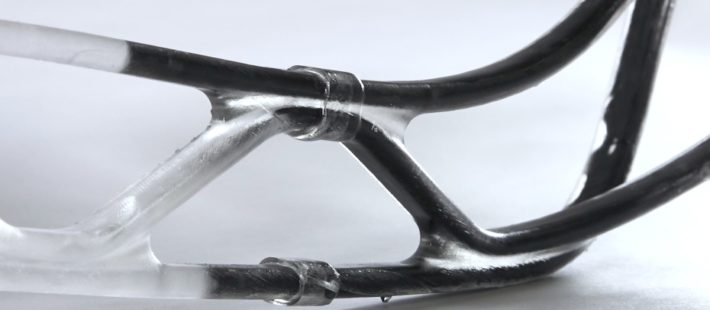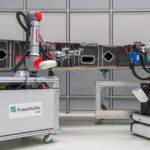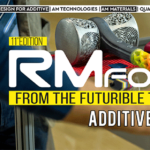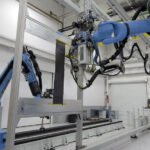Continuous Fiber Injection Process (CFIP) technology works with additive manufacturing to strengthen plastics, metals, and ceramics, creating complex-shaped-composites and high-strength joints. This technology has been developed and patented by Eurecat Centro Tecnológico de Catalunya (Eurecat Technology Centre of Catalonia, Barcelona, Spain), a private, nonprofit R&D organization with 11 facilitiesbrings together the expertise of 650 professionals to serve more than a thousand companies. CFIP enables parts manufactured by 3D printing to be reinforced with continuous carbon fibers, increasing their strength while reducing weight.
The advantages of the new technology
How explains Marc Crescenti, head of Eurecat’s Advanced Simulation line and lead developer: “This is a new post-processing system based on injecting continuous reinforcement fibers, such as carbon fiber, into parts manufactured by 3D printing or other types of technology. The fact that we strengthen the part by means of a post-process method, and not during the manufacturing process itself as other technologies on the market do, brings truly disruptive advantages.”
In more detail, these advantages include freedom in placing the reinforcement fibers and following complex routes created digitally. This also provides a way to actualize the organic shapes output by generative design tools. “This means we can align [fibers] in the most efficient directions and further enhance mechanical performance,” Crescenti adds. CFIP can also strengthen other materials, including plastics, metals, and ceramics, he explains, “which makes it possible, for example, to manufacture a titanium part strengthened with continuous carbon fibers.”
CFIP also affords the option of integrally joining different parts with fiber continuity between them, thus providing very high-performance joints. This allows for multi-material and multi-process structures by selecting the most efficient material and process based on the requirements in each area of the structure. This technological solution has been used in several case studies for aerospace, automotive and sporting goods applications. One example is a brake pedal that Eurecat has developed by integrated joining of different materials and processes.

CFIP has been recognized with multiple awards, the last one is the JEC Composites Innovation Awards 2020 in the additive manufacturing category.
About Eurecat
Eurecat Centro Tecnológico de Catalunya (Eurecat Technology Centre of Catalonia, Barcelona, Spain) is a private, nonprofit R&D organization with 11 facilitiesbrings together the expertise of 650 professionals to serve more than a thousand companies. Eurecat is involved in 160 R&D projects, both national and international, with high strategic value and has 88 patents, seven spin-off technology companies and 11 R&D facilities in Catalonia.
In particular, Eurecart takes part in European Union-funded Clean Sky 2 program. and now has 18 Clean Sky projects awarded on the basis of competitive submissions in response to calls for proposals.
More information www.eurecat.org












